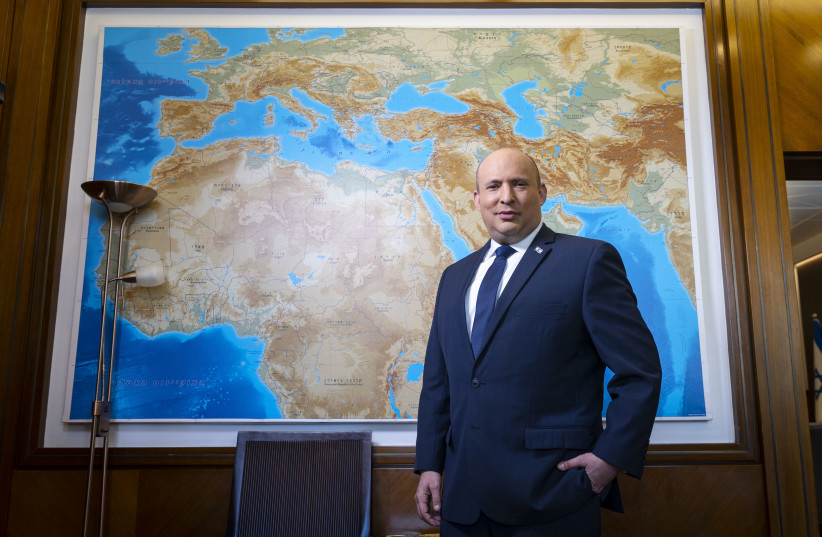The current government is unlikely to implement a plan to formally establish an egalitarian section at the Western Wall, Prime Minister Naftali Bennett admitted this week, in an interview that can be read in full here.
Asked why this government has not moved to put in effect the 2016 plan, which Bennett played a large part in drafting as Diaspora minister, Bennett called it a “controversial topic in this coalition. We knew in advance that we cannot advance everything. We will only act with consensus... This government is meant to save the country and bring it back to function. It cannot fulfill everyone’s wishes.”
Bennett said that members of his own Yamina Party oppose the plan to expand the egalitarian Ezrat Israel section at the Southern Wall and create a joint management committee with leaders of the Conservative and Reform movements. Members of New Hope are against it as well.

“Ezrat Israel is open and whoever wants to come and pray can do so,” the prime minister pointed out. “We are in a process of upgrading and enlarging and creating an even more respectable section.”
The government plans to clear the boulder that fell in the egalitarian section in 2018, keeping worshipers at a distance from the wall, and to make other physical improvements without enacting other parts of the compromise.
The Western Wall has been an ongoing source of friction between Israel’s leadership and some non-Orthodox segments of Diaspora Jewry for years.
Bennett said he feels “a special closeness and caring about Diaspora Jewry, especially American Jewry, as someone whose parents grew up as Jews in the US who were unaffiliated. I want Diaspora Jews to continue their efforts to feel that they have a home here in Israel. Even if there are disagreements, it’s OK, but we need to keep up communication with them.”
Finance Minister Avigdor Liberman also said there was trouble implementing the Western Wall agreement, in an interview with The Post that will be published next Friday (February 4). He said he still thought it could get done, but only after passing Religious Services Minister Matan Kahana’s conversion reform bill into law by the end of the Knesset’s winter session that concludes on March 13, and then the IDF draft bill.
“There needs to be an ability [to implement] the agreement,” Liberman said. “We passed the kashrut reform, then comes the conversion bill and the draft bill, which are all in the coalition agreement. Only then will we get to the Kotel deal, which is not in the coalition agreement.”
Gil Hoffman contributed to the report.
